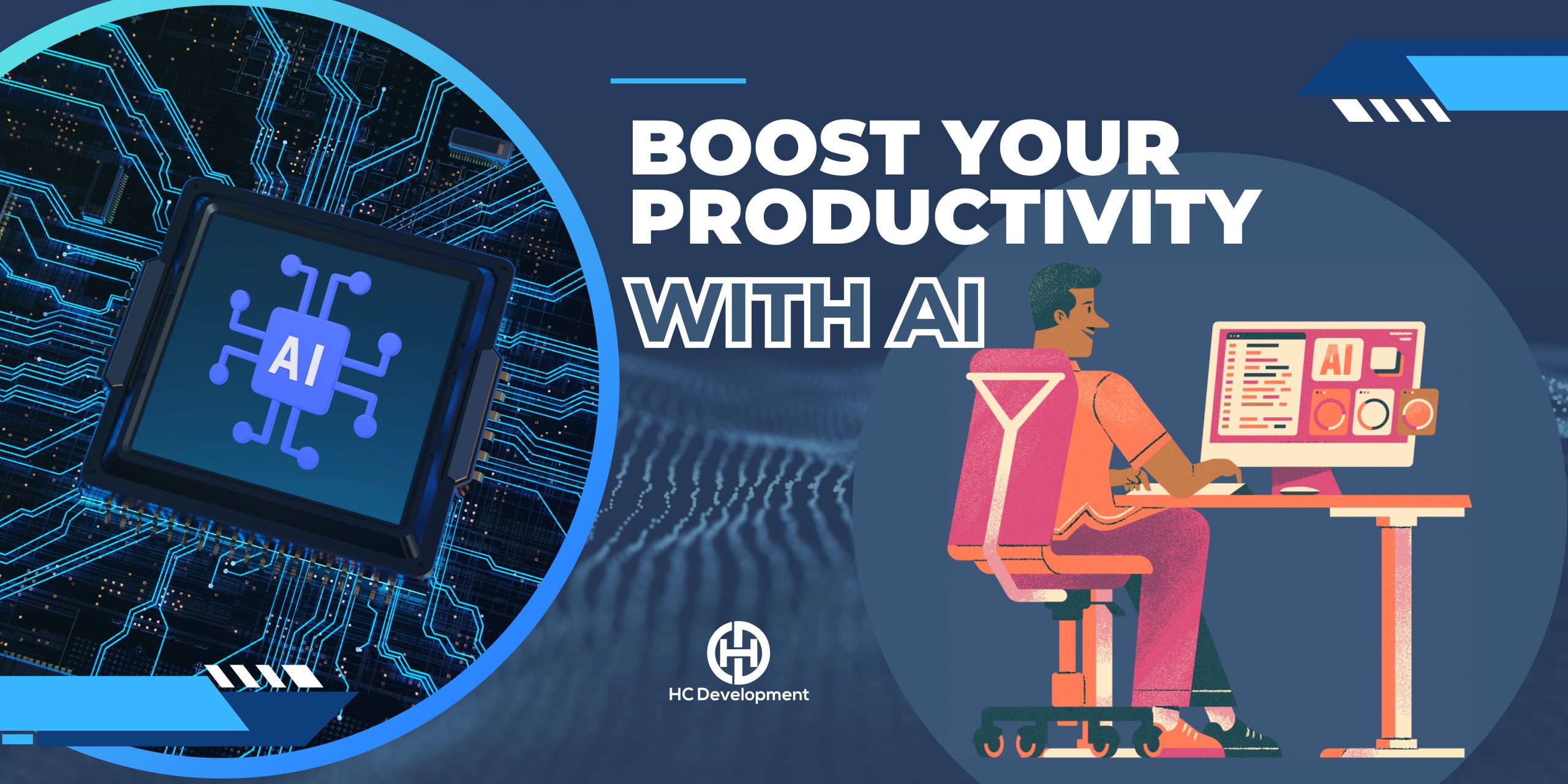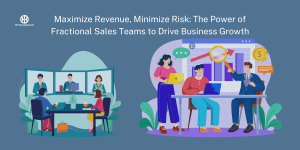Revolutionize Your Strategy: The Best AI Tools for Sales and Marketing Success

In today’s rapidly evolving digital landscape, artificial intelligence (AI) is no longer a futuristic concept — it’s a critical component of successful business strategies. For sales and marketing professionals, AI offers unprecedented opportunities to streamline processes, engage customers more effectively, and drive growth. From automating routine tasks to delivering personalized customer experiences, AI-powered tools are transforming how businesses operate, creating efficiency and boosting results.
This article delves into the top AI tools that are driving success in sales and marketing, making it easier for companies to optimize their efforts and stay ahead of the competition. By exploring various AI-driven solutions, you’ll discover how to harness the power of AI to elevate your sales and marketing strategies, resulting in increased productivity, improved customer engagement, and higher conversion rates.
The Role of AI in Sales and Marketing
Before diving into specific tools, it’s essential to understand why AI is making such a significant impact on sales and marketing. At its core, AI helps automate repetitive tasks, analyze vast amounts of data, and deliver insights that would be impossible or too time-consuming for humans to process manually.
1. Automation
AI can handle mundane tasks such as data entry, lead scoring, and follow-up emails. This automation frees up sales and marketing professionals to focus on more strategic tasks like building relationships and developing creative campaigns.
2. Data Analysis
With AI, businesses can analyze huge data sets to uncover trends, patterns, and actionable insights. This allows companies to understand their target audiences better, forecast future behaviors, and optimize campaigns for better results.
3. Personalization
One of AI’s most valuable contributions is its ability to deliver highly personalized content and experiences at scale. Whether it’s personalized email marketing or tailored product recommendations, AI ensures that customers receive the most relevant and engaging messages.
4. Predictive Insights
AI can predict customer behaviors, sales trends, and market shifts with incredible accuracy. This predictive power enables businesses to make informed decisions that improve customer retention, boost sales, and reduce churn.
Now that we understand how AI enhances sales and marketing, let’s explore the top AI tools you can use to drive success in these areas.
Top AI Tools for Sales Success
AI-powered tools are changing the way sales teams operate. From automating lead management to providing real-time insights, here are some of the best AI tools for sales success:
1. Salesforce Einstein
Salesforce Einstein is a leading AI tool that integrates seamlessly with the Salesforce CRM platform, making it easy for sales teams to leverage AI without leaving their familiar workspace. Einstein automates lead scoring, predicts which leads are most likely to convert, and provides real-time insights to help sales teams prioritize their efforts.
Key Features:
- AI-driven predictive lead scoring
- Automated follow-ups and task reminders
- Real-time analytics on sales performance
Why It’s Effective:
By predicting outcomes and prioritizing leads, Salesforce Einstein helps sales teams close deals faster and more efficiently.
2. HubSpot Sales Hub AI
HubSpot Sales Hub integrates AI into its platform to help sales teams streamline their workflows and improve communication with prospects. From automated email follow-ups to AI-powered chatbots, HubSpot makes it easy for sales professionals to manage their pipeline and close deals faster.
Key Features:
- AI-powered email tracking and follow-ups
- Chatbots for lead qualification
- Predictive sales analytics
Why It’s Effective:
HubSpot’s AI tools simplify time-consuming tasks like lead nurturing, freeing up time for sales teams to focus on relationship building and closing deals.
3. Conversica
Conversica is an AI-powered sales assistant that automates lead follow-up and nurturing. By engaging leads in two-way conversations, Conversica helps sales teams focus on leads that are most likely to convert. It ensures that no lead slips through the cracks by maintaining consistent communication.
Key Features:
- AI-driven email follow-ups
- Two-way conversational AI for lead engagement
- Lead qualification and handover to sales teams
Why It’s Effective:
Conversica’s conversational AI provides a personal touch, ensuring leads feel engaged while freeing up salespeople to focus on hot prospects.
4. Chorus.ai
Chorus.ai is a conversation intelligence platform that uses AI to analyze sales calls and meetings, providing actionable insights to sales teams. Chorus.ai helps sales professionals improve their communication, identify winning tactics, and understand customer needs better.
Key Features:
- AI-driven call analysis and transcription
- Insights into successful sales tactics
- Coaching and feedback based on AI analysis
Why It’s Effective:
By analyzing sales conversations, Chorus.ai provides insights that help sales teams refine their approach and close deals more effectively.
Top AI Tools for Marketing Success
Marketing teams are also reaping the benefits of AI. From content creation to audience targeting, here are the top AI tools that can help marketing professionals drive success:
1. Marketo Engage
Marketo Engage, powered by Adobe, is an AI-driven marketing automation platform designed to help marketers create personalized campaigns at scale. By using AI to analyze customer data, Marketo Engage can predict the most effective marketing tactics for each audience segment.
Key Features:
- AI-driven campaign optimization
- Personalized email and ad targeting
- Lead nurturing and scoring
Why It’s Effective:
Marketo Engage enables marketers to create tailored campaigns that resonate with their audience, resulting in higher engagement and conversion rates.
2. Hootsuite Insights
Hootsuite Insights uses AI to analyze social media data and provide actionable insights for marketers. With this tool, marketers can monitor brand sentiment, track competitor activity, and identify emerging trends on social media platforms.
Key Features:
- AI-powered social media monitoring
- Sentiment analysis and brand reputation tracking
- Competitor benchmarking
Why It’s Effective:
Hootsuite Insights provides marketers with the data they need to stay ahead of the competition and respond to customer feedback in real-time.
3. Seventh Sense
Seventh Sense is an AI-driven tool designed to optimize email marketing efforts. By using machine learning, it determines the best times to send emails based on individual recipient behavior. This helps marketers increase open rates and engagement.
Key Features:
- AI-powered email send-time optimization
- Behavioral analysis of recipients
- Integration with marketing platforms like HubSpot
Why It’s Effective:
Seventh Sense ensures that your emails are delivered at the optimal time for each recipient, increasing the chances of them being opened and acted upon.
4. Crimson Hexagon
Crimson Hexagon is a powerful AI tool for social media analytics and audience insights. It helps marketers understand consumer behavior by analyzing data from social media platforms, forums, and blogs. The tool provides deep insights into audience preferences, trends, and sentiment.
Key Features:
- AI-powered social media analytics
- Audience segmentation and sentiment analysis
- Competitive analysis
Why It’s Effective:
Crimson Hexagon allows marketers to tailor their campaigns based on real-time insights, helping them connect with their audience in a more meaningful way.
AI in Action: Real-World Success Stories
Many companies have already integrated AI tools into their sales and marketing strategies and have seen remarkable results. Here are a few success stories that highlight the power of AI:
1. Netflix: Personalized Recommendations
Netflix uses AI algorithms to recommend movies and shows based on user preferences. This personalized experience has contributed to Netflix’s massive growth, keeping users engaged and reducing churn.
2. Coca-Cola: AI-Driven Customer Engagement
Coca-Cola uses AI to analyze customer feedback from social media and tailor its marketing campaigns accordingly. By understanding customer sentiment in real-time, Coca-Cola can adjust its messaging to better resonate with its audience.
3. Spotify: AI-Powered Music Discovery
Spotify uses AI to recommend songs and create personalized playlists for users. By leveraging machine learning, Spotify ensures that its users are always discovering new music that aligns with their tastes.
Future of AI in Sales and Marketing
The future of AI in sales and marketing looks promising as technology continues to advance. AI will become even more integrated into every aspect of the customer journey, from initial contact to post-sale support. Emerging trends include:
Hyper-Personalization: AI will continue to improve personalization by analyzing more granular data, allowing businesses to deliver highly tailored experiences at every touchpoint.
Voice Search Optimization: As voice assistants become more common, marketers will need to optimize their content for voice search, with AI tools helping to analyze and predict voice search trends.
AI-Driven Content Creation: AI is already being used to generate written content, and this trend is expected to grow. Soon, AI may be capable of creating entire marketing campaigns autonomously, based on data analysis and customer insights.
Conclusion
AI tools are revolutionizing sales and marketing by automating tasks, providing valuable insights, and delivering personalized experiences at scale. From tools that analyze social media trends to those that optimize email marketing campaigns, AI is enabling businesses to engage with their customers more effectively and efficiently. By leveraging the power of AI, sales and marketing professionals can drive success, outperform their competitors, and create lasting customer relationships.
To know more about Business Growth and Strategy Click Here
Subscribe : Youtube



